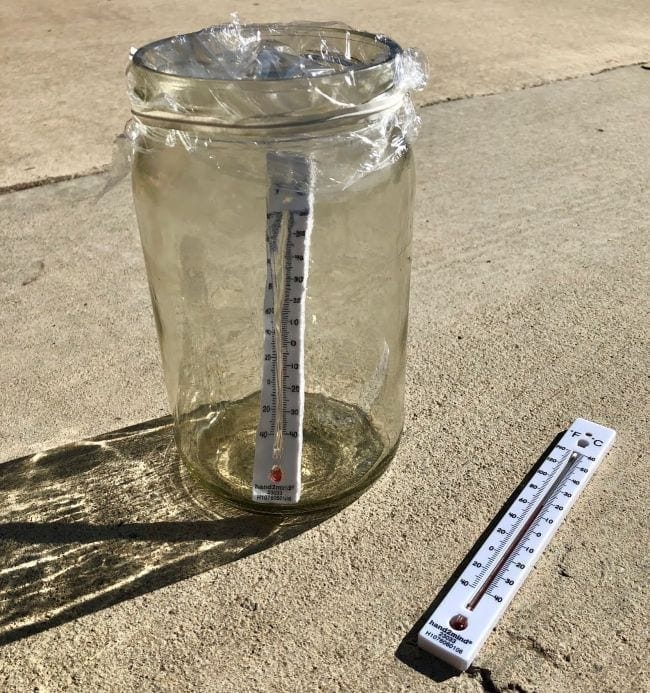STEM Learning Pathways, Pipelines, and Ecosystems
Welcome to Insights & Opportunities: A Hub for Informal STEM Education! Insights & Opportunities is a twice-monthly newsletter for educators, administrators, legislators, and advocates who recognize the importance of informal STEM learning.
This newsletter is brought to you by me, Sarah Dunifon, and my team at Improved Insights. I’m a long-time STEM educator, researcher, and equity advocate. Along with my team, I now work on cutting-edge informal STEM learning research and evaluation.
Each edition of this newsletter offers exciting insights, resources, and opportunities for informal STEM learning professionals, including funding, jobs, professional development, informal STEM learning research, evaluation tips and resources, and so much more! We hope you find it valuable. Now, let’s get started.
STEM Learning Pathways, Pipelines, and Ecosystems
In this edition of Insights & Opportunities, we'll review the similarities and differences between STEM learning pathways, pipelines, and ecosystems, and what these differences mean for evaluation. To read the full article, check it out in our Insights. In the meantime, here’s a taste:
-
If you’ve been in the STEM learning space for some time, you’ve probably come across the terms “STEM learning pipelines,” “STEM learning pathways,” and “STEM learning ecosystems.” While similar in their aim to guide learners from one STEM experience to another, there are definite differences between the three.
[...]
“Ecosystems” is also a newer term and emphasizes the interconnectedness of STEM learning experiences. You might see it referencing the organizations that operate STEM learning within a geographic area, or perhaps in reference to the experience of a single learner who bounces between opportunities, being referred to other opportunities by different STEM learning organizations that work in partnership with each other to achieve larger goals.
Evaluating pipelines, pathways, and ecosystems may look different, depending on the values that underlie their design and the strategies that each employs. For example, evaluation of STEM learning ecosystems might look more at the relationships between organizations and opportunities, or the routes that learners take within the ecosystem between opportunities. Comparatively, evaluation of STEM learning pipelines and pathways might focus more on retention in STEM fields (be that in informal learning opportunities, in formal STEM degree-granting programs, or in STEM careers).
To read the full article, check it out in our Insights.
60-Second Suggestions
Here are a few of our favorite things this month, usually pertaining to informal STEM education and evaluation, but occasionally some fun personal stuff, too.
This report from the Wallace Foundation examines the effectiveness of out-of-school-time (OST) programs and identifies six key goals to better support OST programs for federal, state, and local policymakers, intermediaries, municipal agencies, and nonprofit organizations, including supporting stable OST funding and improving understanding of program outcomes.
This article by Carlotta A. Berry reflects on factors that influence the success of Black women in STEM, centering on equity and innovative approaches to the narrative and marketing of STEM to better resonate with women and people of color. Berry identifies nine key elements that influenced her success as a Black woman in STEM, as well as the success of others with similar lived experiences.
With summer on our doorstep, we’re always looking for fun science-y activities that get students outdoors and interacting with nature. This list of 61 activities from We Are Teachers offers outdoor science experiments for kids (and adults!) at every level, from observing the greenhouse effect to a soil vs. hydroponics test.
Opportunities
Check out these new opportunities for the informal STEM learning community.
Funding:
2025 Founders' Award, SAX LLP, $20,000. U.S.-based nonprofit leaders are invited to apply for unrestricted funding to support and empower these organizations and ensure their continued existence and positive impact. Submissions will consist of a non-professional video, no longer than 5 minutes, that answers the following questions: How is perseverance engrained in your organization's mission? Can you share a time when your nonprofit faced a major challenge and how you overcame it? How do you plan to sustain and grow your impact despite obstacles like funding or policy changes? Submissions are due by June 20, 2025.
2025 Grant Cycle, The Detwiler Family Foundation, $10,000-$50,000. Nonprofits in areas of Pennsylvania, Montana, Georgia, Oregon, Vermont, and New Hampshire are invited to apply for funding to support education and afterschool programs for disadvantaged children, among other categories. Selected projects must be implemented by December 31, 2025. Applications are due by July 1, 2025.
2025 Grant Cycle, The Morris and Gwendolyn Cafritz Foundation, variable. Nonprofits serving the greater Washington, D.C. area are invited to apply for funding to support five program areas: education, arts and humanities, community services, environment, and health and wellness. Projects submitted in the education category may include both formal and informal learning opportunities. Applications are due July 1, 2025.
Energize the Environment Grant Program, Quadratec, $3,500. Individuals, groups, and organizations based in the U.S. with ideas or events designed to help the environment are invited to submit a brief essay about their proposed project or endeavor. Examples of previously funded projects include trail building, litter prevention initiatives, and community environmental education projects, among others. Essays must be submitted by June 30, 2025.
Moonshot Awards 2025, Moonshot Platform, $5,000-$10,000. Young people ages 15 to 30 are invited to apply for a variety of Moonshot awards structured around the United Nations Sustainable Development Goals. The awards are divided into three main categories, Idea, Start-Up, and Non-Profit, all centered on youth-driven, early-stage initiatives that advance learning, health, art for humanity, AI for good, and borderless solutions. Applications are due July 15, 2025.
Jobs and Fellowships:
Director of Education & Community Engagement, Watershed Stewards Academy (Millersville, MD), $75,000. The Director of Education and Community Engagement will lead innovative training and engagement programs of the Watershed Stewards Academy, ensuring community members have access to educational programs and resources. They will lead partnership development with community anchor institutions and ensure the Academy's programs meet the needs of surrounding communities. Applications are due June 15, 2025.
Education Coordinator, Florida Atlantic University (Fort Pierce, FL), $50,000. The Education Coordinator will be responsible for the organization and implementation of K-12 programs, including afterschool and summer programs. They will serve as the lead instructor of Marine and Oceanographic Academy coursework, including Environmental Science, Biology, Chemistry, Marine Science, and Physics. They will develop new activities and programs for K-12 audiences and support program evaluation and reporting.
Education Director, Holly Hill Farm (Cohasset, MA), $65,000. The Education Director will oversee, manage, and implement all education programs at the farm, including supervising staff, interns, and volunteers. They will develop and refine programs to ensure program growth and impact, including STEAM, farm, and outdoor-based education curricula.
Education Manager, Lancaster Science Factory (Lancaster, PA), $52,000. The Education Manager will oversee the day-to-day operations of education programs on and off-site, including program development, implementation, evaluation, and promotion. They will lead the development and delivery of engaging programs that inspire curiosity, creativity, and confidence in STEM, and support supervising education staff.
Lead Educator, Annapolis Maritime Museum & Park (Annapolis, MD), $48,000. The Lead Educator will ensure the delivery of engaging, high-quality PreK-5 environmental education programs and play a lead role in program instruction, educator and volunteer training, and animal care. Applications are due June 16, 2025.
Professional Development:
37th Annual Visitor Studies Association Conference, Visitors Studies Association, July 15-17, 2025 (Virtual). The Visitor Studies Association (VSA) will host their 37th Annual Visitor Studies Association Conference virtually from July 15-17, 2025. The conference will focus on building expertise for effective evaluation, collaboration to build further rigor in advocacy, and examples of how visitor studies are used by leadership, among other topics.
2025 Summer Institute for Climate Change Education, Teach Climate Network, July 14-17, 2025 (Virtual). The Summer Institute for Climate Change Education invites both formal and informal educators to join for a three-day climate change education conference July 14-17, 2025. The Institute will explore the themes of: Understanding and Observing Climate Change, Education for Justice, Educators as Change Makers & Champions, and Climate Change Education Policy, among others.
AZA 2025 Annual Conference, Association of Zoos & Aquariums (AZA), September 13-18, 2025 (Tampa, FL). The Association of Zoos & Aquariums will host their annual conference in Tampa, Florida, from September 13-18, 2025. During the conference, zoo and aquarium professionals will explore ideas and best practices through more than 150 education program sessions, participate in round-table topic discussions, experience new technology, and more. Early bird registration closes August 15, 2025.
Connectivity: ASTC 2025, Association of Science and Technology Centers (ASTC), September 5-8, 2025 (San Francisco Bay Area). ASTC will host their annual conference in the San Francisco Bay Area from September 5-8, 2025. The conference will host a global community of science-engagement professionals, leaders in science and technology centers, and museums for plenary and professional development sessions. Centered this year on the theme of Connectivity, the conference will highlight the way the consortium of institutions works together to foster a rich learning environment and how those in the field connect with and learn from each other. Early bird registration is available through July 21, 2025.
Systems, Stories, and Stewardship: A Practical Guide to Modern Fundraising - OMA Webinar, American Alliance of Museums (AAM) and Ohio Museums Association (OMA), June 16, 2025, at 10:00 AM ET (Virtual). Join the Ohio Museums Association for a webinar focused on museum fundraising. The session will look at changing donor behavior and adaptive strategies through a grounded, human-centered lens on how organizations can deepen donor relationships, drive giving, and build systems that make both possible. The webinar will be held on June 16, 2025, at 10:00 AM ET.
Thanks for tuning in to this edition of Insights and Opportunities. While you’re waiting for the next edition, tell your friends! We appreciate you sending along a blog post you enjoyed, a job opportunity you think a friend should apply for, and resources you found valuable. Sharing this newsletter is the best way to support this work. Until next time - thanks!








